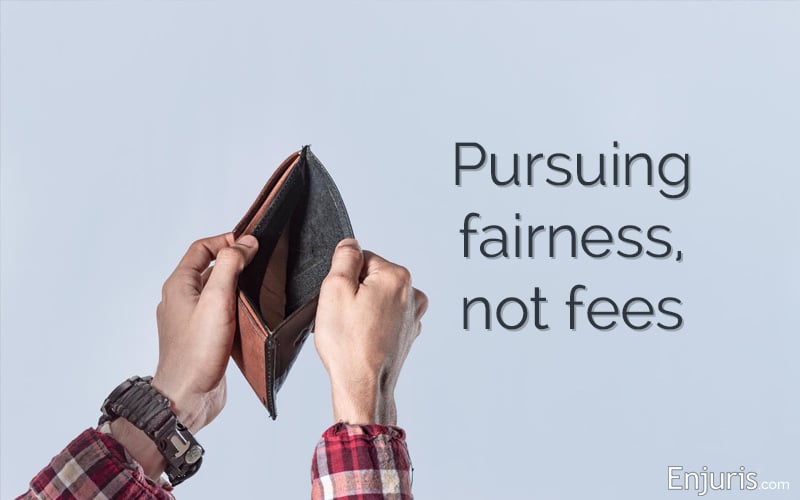
Learn how to make every penny count in your legal journey
Navigating a personal injury lawsuit doesn't have to be financially overwhelming. By understanding various cost-saving strategies, from billing structures to alternative dispute resolutions, you can seek justice without breaking the bank. Explore these methods to ensure a financially smart legal journey.
When you’ve been injured, the last thing you want to think about is the financial burden that can come with seeking justice.
While it’s essential to hold the responsible party accountable, legal fees can add up quickly and make you question whether hiring a personal injury lawyer is worth it.
But fear not.
By knowing the strategies to minimize legal expenses, you can pursue your personal injury lawsuit with both confidence and financial prudence.
Understanding contingency fees: pay only if you win
Most personal injury attorneys operate on a contingency fee basis. This means they only get paid if you win your case or settle. Typically, they will take a percentage of your settlement or judgment.
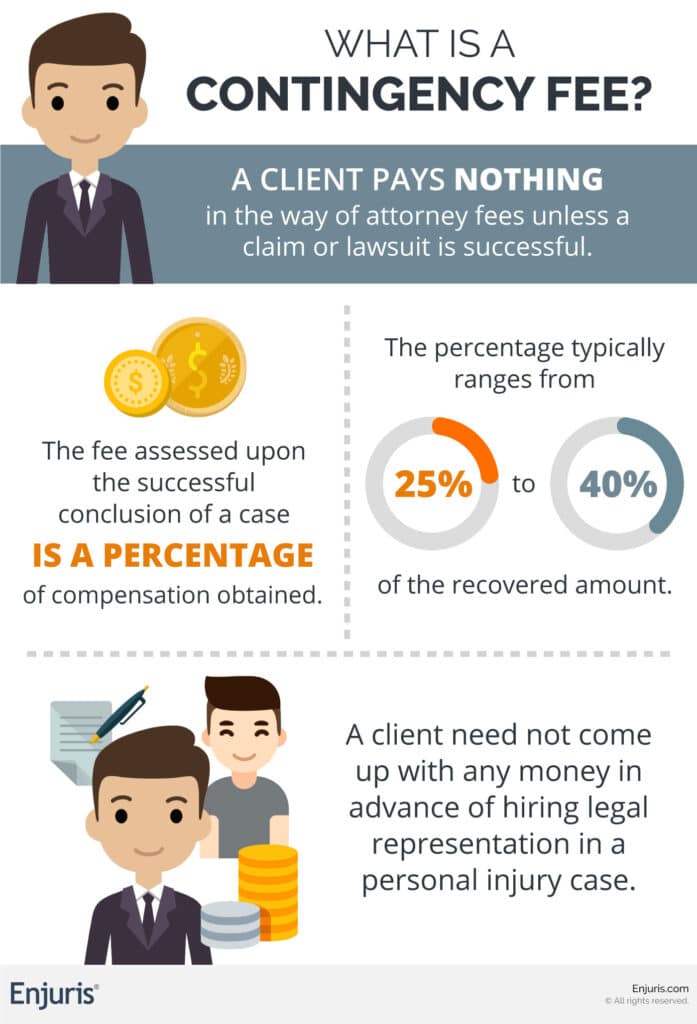
Before signing a contingency fee agreement, clarify all potential costs with your attorney. Some contingency fee agreements require you to pay for legal costs, such as expert witnesses, court filings, and costs for obtaining medical records.
Use your attorney’s time efficiently
If your attorney isn’t representing you under a contingency fee agreement, they’re probably billing by the hour (usually in increments of six minutes). Accordingly, it’s in your interest to ensure that every interaction with your attorney is efficient.
The best way to save time is to come prepared for your initial consultation. If you take the time to organize and bring all relevant documents to your initial consultation, you’ll save your attorney the time of asking questions and tracking down all of the documents they need.
The following resources can help you show up to your initial consultation prepared:
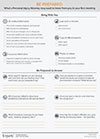
A worksheet to prepare for your first meeting with a personal injury attorney – what to bring, what they'll ask
Download in PDF format
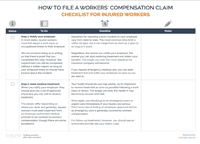
Download this checklist for injured workers to learn how to file a workers’ comp claim and track your progress.
Download in PDF format
Avoid calling your attorney multiple times a day; instead, consolidate your concerns and address them in one communication.
Explore alternative dispute resolution
Litigation is expensive. Alternative dispute resolution (ADR), such as mediation or arbitration, can be a cost-effective way to resolve your claim. These processes are often quicker and less formal than court proceedings.
Ask your attorney early on about the possibility of ADR. It’s not the best option for every case, but it might save you time, money, and emotional strain.
Be proactive in gathering evidence
While your attorney will conduct investigations, any evidence you can provide might expedite the process. Photos, medical records, and witness testimonies are all essential in building a robust case.
It’s a good idea to start documenting everything and collecting evidence immediately after your accident. This proactive approach ensures you don’t forget critical details and can substantially reduce the time your lawyer spends gathering evidence.
Here are a couple of resources to help get you started:
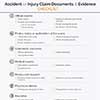
Checklist of 30 items to help you prepare for making a personal injury or accident claim
Download in PDF format

Sample accident journal/diary to help you document the effect on your daily life
Download in PDF format
Stay informed and engaged
Staying updated about your case can cut down on unnecessary consultations. Similarly, you can save your attorney time by promptly complying with their requests.
Create a timeline with your attorney at the outset of your case, detailing important milestones and deadlines. Doing so can help you remain proactive, anticipate costs, and avoid last minute surprises that might increase expenses.
Double-check billing statements
All states have statutes preventing attorneys from charging “unreasonable fees.” Although most attorneys do not set out to charge unreasonable fees, billing mistakes do happen.
It’s a good idea to go over your fee agreement with your attorney, and to double-check every bill your attorney sends you. If you don’t understand something, be sure to ask your attorney to clarify.
From double billing to bill padding, learn about the red flags to look out for and find out what to do if you think your attorney is taking advantage of you.
Consider free legal help
There are a surprising number of options for injured individuals who need free or reduced-cost legal services. To receive these free or reduced-cost legal services, you typically must have an income that is less than 125 percent of the federal poverty level.
Legal aid organizations, law school clinics, and state bar associations are all great resources for free legal help. Additionally, although it’s not completely free, you might decide to forgo an attorney and seek justice by representing yourself in small claims court.
Small claims courts are designed for people who are seeking a money judgment. What distinguishes small claims courts from other courts is that there’s a specific limit or “cap” on the amount you can recover. The dollar limit depends on the state, although some states have different limits based on the type of case. In Kentucky and Rhode Island, for example, you can only recover $2,500 in a small claims action. In other states, though, you could be awarded a judgment of up to $15,000.
Learn more about where to get free legal help.
Pursuing justice doesn’t have to break the bank. By understanding the billing structures, staying organized, considering alternative resolutions, proactively gathering evidence, staying informed, and exploring free representation, you can ensure your journey to justice is both successful and financially smart.
See our guide Choosing a personal injury attorney.
